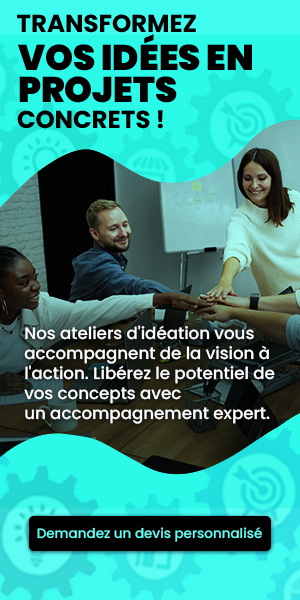Exploration is a fundamental process that allows one to immerse themselves in the unknown, analyze phenomena, and discover new perspectives. This approach, often initiated in the context of scientific research or education, transcends mere observations to offer a deep understanding of the issues at stake. The methods of exploration, whether qualitative or quantitative, play a crucial role by enabling the mapping of complex realities, identifying trends, and generating useful knowledge. By shedding light on the different facets of exploration, one can better grasp the implications and opportunities it presents, both theoretically and practically.
🔥 Nous recommandons Ideamap
Ideamap est l’outil idéal pour un brainstorming ou un projet collaboratif. Grâce son interface facile et à ses fonctions IA, Ideamap booste votre créativité tout en favorisant une meilleure organisation de vos idées pour atteindre vos objectifs.
Exploration is a process that involves systematic and in-depth analysis of a given field with the aim of discovering new information, generating ideas, or broadening understanding. In the social sciences, exploration plays a pivotal role as it helps establish direct contact with the lived reality of social actors. This not only allows for observation but also for interaction with the subjects being studied. Thus, exploration infuses values of authenticity and understanding into the research process.
The methods of exploration are varied and can include techniques such as observation, interviews, and document analysis. These methods are designed to provide researchers with tools to adopt an in-depth approach to their object of study. For example, field observation yields nuanced and contextual perceptions that are often lost in more quantitative analyses or those based solely on data.
One key step in exploration is the definition of the research object. This guides the researcher toward the different dimensions of the phenomenon to be studied. In social sciences, defining what the object of study is allows for a focus on particular issues and determining the relevant questions to ask. Exploration often necessitates a preliminary phase where researchers formulate clear questions to guide their approach.
Another important dimension of exploration concerns data exploration. This process involves examining and analyzing large amounts of information to identify significant trends and patterns. Data exploration often relies on computational tools that allow for the processing of substantial volumes of information. Consequently, a deep understanding of data exploration methods becomes essential for anyone wishing to properly interpret complex information sets. Resources like Wikipedia offer a wealth of information on this topic.
Exploration, especially in the context of innovation, also entails an active search for new ideas, creative approaches, or innovative projects. In this perspective, it is crucial not to be content merely to exist within a rigid academic framework. Works on design thinking, for instance, demonstrate how user-centered methods can stimulate exploration processes. These approaches foster interaction and encourage collaboration, which must be taken into account when analyzing the challenges of research. For more details, you can check this link.
Another crucial aspect of the exploration process is its complexity. Whether for extracting resources like hydrocarbons or conducting analyses in fields such as education, exploration requires meticulous planning and may necessitate substantial investments of time and human resources. It is an undertaking that demands teams of specialists willing to navigate through this often lengthy and challenging research phase. Articles on the subject, such as those found on Planète Énergies, can provide interesting insights into the steps of this process.
Finally, exploration is not just a preliminary phase of research; it is often through this process that innovations emerge. Optimizing the life cycle of a product, as discussed on this site, is an example of how thoughtful exploration can lead to tangible results and improve existing practices.















